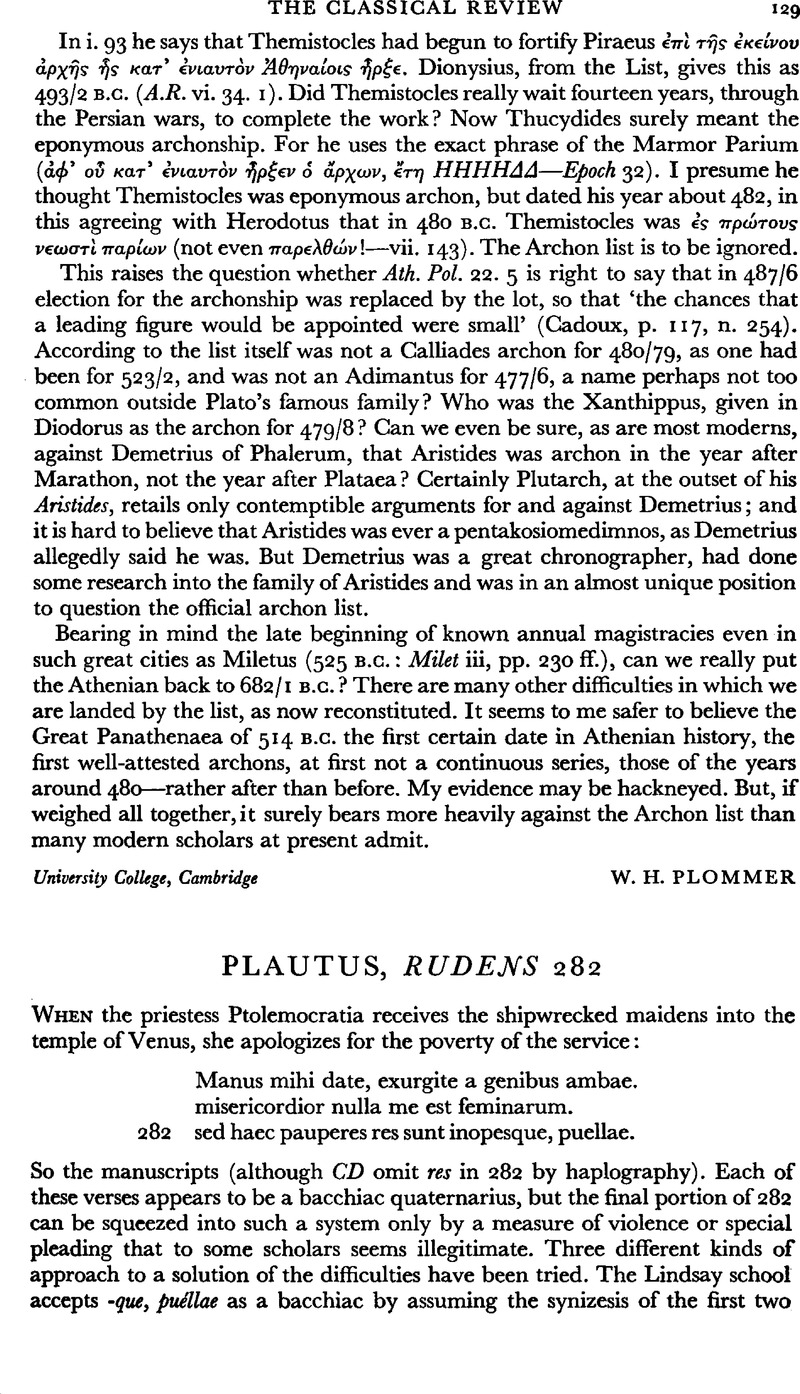No CrossRef data available.
Published online by Cambridge University Press: 27 February 2009

page 130 note 1 The prosodical interpretation of such passages is part of a wider problem. Skutsch's, F. theory (see especially his Kleine Schriften, 227 ff.Google Scholar) that Iambenkürzung is a more economical way of explaining prosodically ambiguous passages than synizesis has much to commend it; but see further Lindsay, , Early Latin Verse, 61 ff.Google Scholar; Skutsch, O., Prosodische und metrische Gesetze der Iambenkürzung (Göttingen, 1934), 71 f.Google Scholar; Drexler, , ‘Lizenzen’ am Versanfang bei Plautus (Munich, 1965), 9 f.Google Scholar, n. II. Müller's, C. F. W.Plautinische Prosodie (Berlin, 1869) is now outdated in many respects, but on p. 250Google Scholar he has some still useful more remarks on the prosody of puella.
page 130 note 2 Glotta, vii (1916), 40.Google Scholar
page 130 note 3 Cf. Questa, C., Introduzione alia metrica di Plauto (Bologna, 1967), 217.Google Scholar
page 130 note 4 Attached to the editio maior, p. 151. Schoell prints his own conjecture, aediculae, in his text.
page 130 note 5 Cf. my note in G. & R. xv (1968), 14f.Google Scholar
page 131 note 1 At the last moment, when amendment of this note was no longer feasible, ProfessorSkutsch, O. kindly referred me to A. Spengel's Reformvorschläge zur Metrik (Berlin, 1882), especially 113 ff., 193 ff., 272 ff.Google Scholar With authoritative succinctness this neglected work makes all the points that Jachmann, Marx, and Questa reiterate. Now see p. 250.